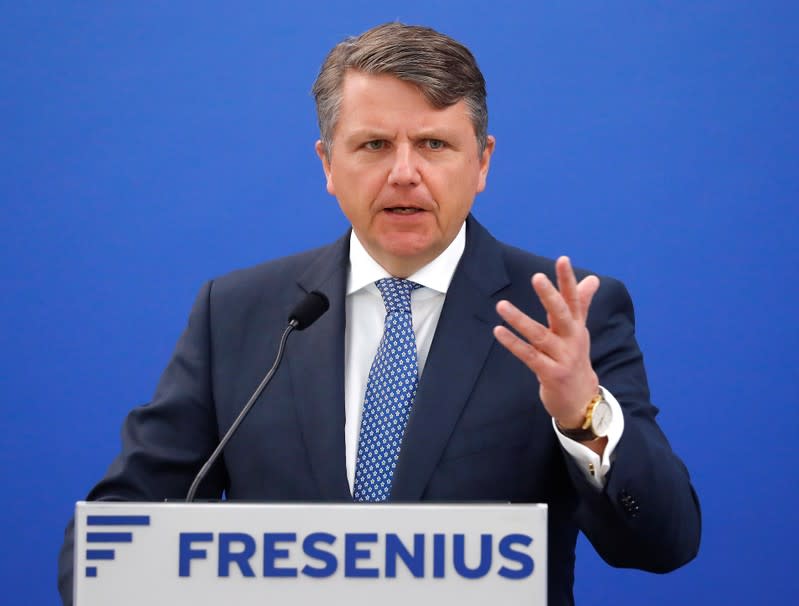Fresenius beats third-quarter forecasts with strong sales of home dialysis treatments

By Zuzanna Szymanska
(Reuters) - German healthcare group Fresenius <FREG.DE> beat third-quarter revenue forecasts on Tuesday, citing a solid performance by its infusion drugs unit in emerging markets and strong growth in home treatment at its separately listed dialysis business.
The group said both Fresenius Medical Care <FMEG.DE>, the world's largest provider of dialysis treatments, and drugmaker Kabi saw strong organic growth in Asia and Europe, more than offsetting weak U.S. markets.
Its Helios unit, which runs private hospitals in Germany and Spain, also reported good growth.
The group confirmed its full-year guidance after third-quarter revenues rose by 8% to 8.9 billion euros ($9.86 billion) in the third quarter, compared to 8.7 billion euros in a company-compiled consensus.
Shares in both Fresenius and Fresenius Medical Care were up about 4% in early trade on Tuesday.
Analysts said investors were relieved that a summer slowdown at Helios and a further negative impact from a U.S. dialysis treatment coordination programme known as ESCO did not materialize.
"Our businesses developed solidly in the third quarter, keeping Fresenius on track to deliver the results that we promised earlier this year," Chief Executive Stephan Sturm said in a statement.
Fresenius Medical Care reported a 9% rise in its third-quarter revenue, driven by record growth in home dialysis in North America as its investment in NxStage, a U.S. maker of home-use dialysis machines FMC acquired earlier this year, started to pay off.
Shares in FMC, which remains exposed to changes in U.S. healthcare policy with 70% of its revenue coming from North America, had lagged the European health sector index <.SXDP> since July when President Donald Trump's administration set goals to move more kidney disease treatment out of dialysis clinics and into patients' homes.
While this could hurt FMC's business of supplying the clinics, the company stands to benefit from its investment in home dialysis systems, softening the potential impact, analysts have said.
FMC's earnings came in slightly above expectations despite a negative adjustment for income from the ESCO programme, established to coordinate the care of dialysis patients.
The "ESCO effect" reduced third quarter revenue and earnings before interest and tax (EBIT) by 46 million euros, and made a 33 million euro dent in net income, the company said.
In the second quarter, FMC lowered the range for an expected ESCO programme lump-sum reimbursement by 41 million euros.
FMC's third-quarter sales totalled 4.4 billion euros, a touch above analysts' average forecast of 4.3 billion euros in a company-compiled consensus.
Fresenius Medical Care confirmed its 2019 guidance of adjusted revenue growth between 3% and 7% at constant exchange rates, and adjusted net income change to be in the range of between 2% higher and 2% lower than last year.
For 2020, the company expects adjusted revenue as well as adjusted net income to grow at a mid to high single digit rate.
($1 = 0.9024 euros)
(Reporting by Zuzanna Szymanska in Gdansk; Editing by Tomasz Janowski and Susan Fenton)

